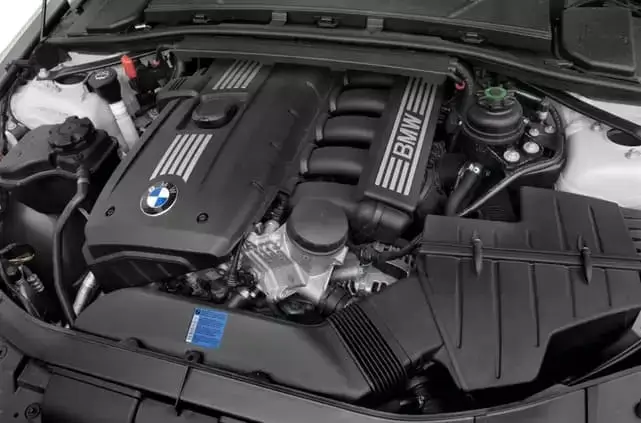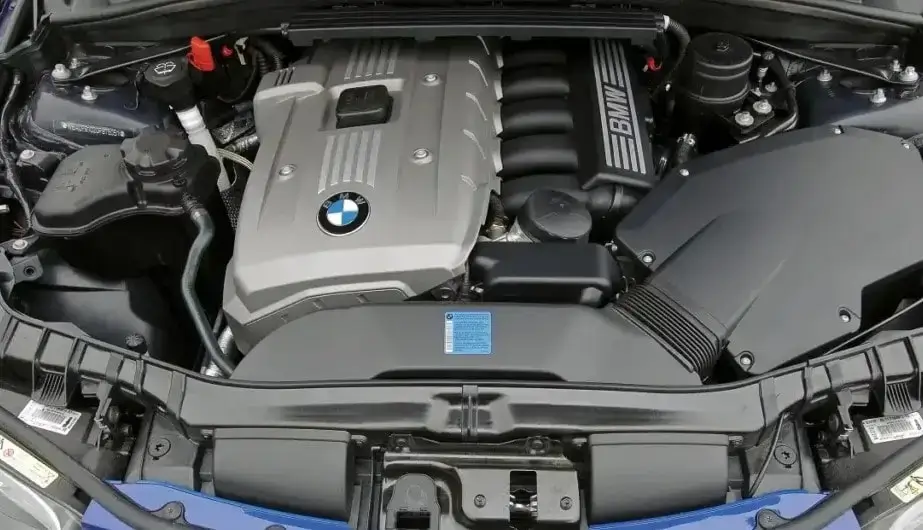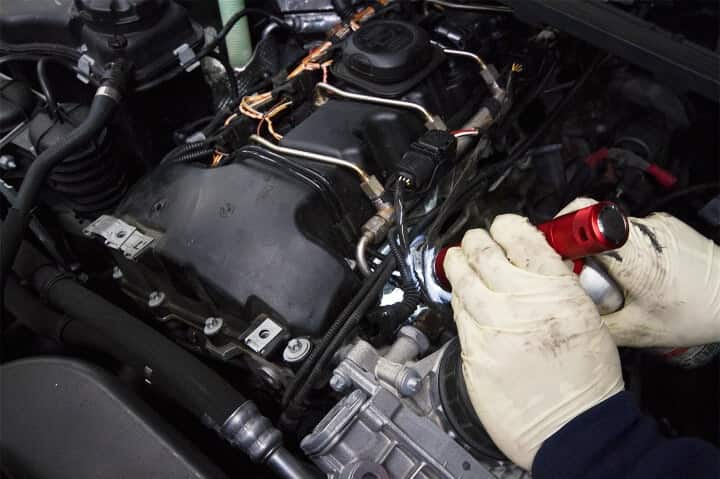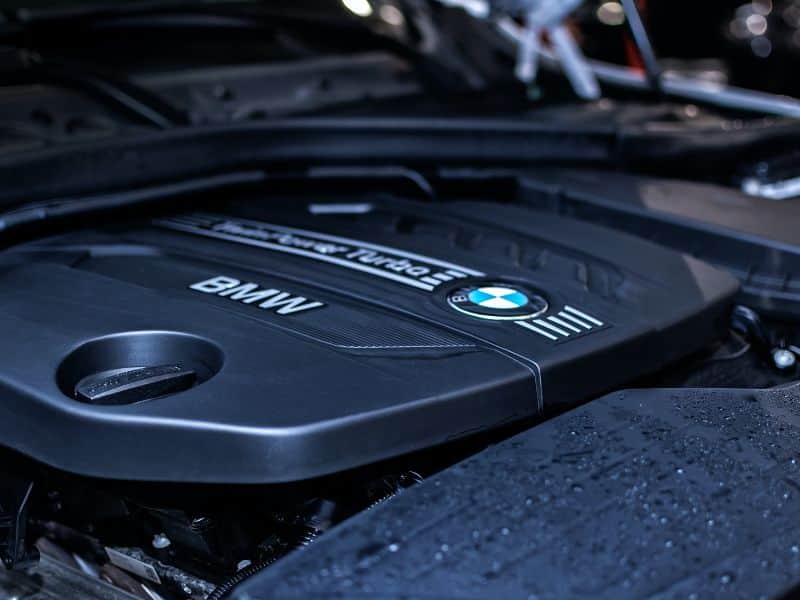When it comes to pure performance, luxury, and beautifully designed cars, BMW always came on top.
The main thing that sets BMW apart is its engine which is built to produce high performance in their vehicles. One of these is the N52, a standard for BMW engineering excellence.
The N52 has always been the talk of enthusiasts for being one of the most reliable 6-cylinder engines ever made by BMW.
So, today let’s discuss the actual truth behind the BMW N52 engine, are they really that reliable or it’s just a myth?
BMW N52 Overview
The BMW N52 is a naturally aspirated six-cylinder petrol engine, that was produced from 2004-2015. This engine was also listed in Ward’s 10 Best Engines in 2006 and 2007.
This engine was very ahead of its time it was the first engine to use magnesium/aluminium composite construction on its engine block. It makes the engine very light and durable.
To improve the performance it also used Valvetronic variable valve timing and Double-VANOS variable valve timing.
This engine was launched in two variants the N52B25 (2,497 cc) and the N52B30 (2,996 cc).
BMW n52 Performance
The N52 performance is one of BMW’s top-notch in the inline 6-cylinder range.
The BMW N52B25 has 2,497 cc (152.4 cu in) producing 174 BHP at 5,800 RPM to 215 BHP at 6,500 RPM and the N52B30 has 2,996 cc (182.8 cu in) produces 215 BHP at 6,100 RPM to 268 BHP at 6,650 RPM.

You would understand better if I listed this number accordingly.
| BMW N52B25 | BMW N52B30 | |
| Displacement | 2,497 cc (152.4 cu in) | 2,996 cc (182.8 cu in) |
| Power OutPut | 174 BHP (130 kW) at 5,800 RPM To 215 BHP (160 kW) at 6,500 RPM | 215 BHP (160 kW) at 6,100 RPM To 268 BHP (200 kW) at 6,650 RPM |
| Torque | 230 N⋅m (170 lb-ft) at 3,500-5,000 RPM To 250 N⋅m (184 lb-ft) at 2,750-4,250 RPM | 270 N⋅m (199 lb-ft) at 2,500-4,250 RPM To 315 N⋅m (232 lb-ft) at 2,750 RPM |
Now you know the power output of the N52 engine, let’s see its reliability.
BMW N52 Engine Reliability Analysis
So, I’ve done a survey by asking many of my friends, different BMW online communities, and forums, and here are some points I’ve found out about why the N52 engine is considered one of the greatest inline 6-cylinder engines ever produced by BMW.
So, let’s look into these points.
Naturally Aspirated
The N52 is a naturally aspirated engine that doesn’t use any turbos to enhance its power. The turbochargers do increase the engine power, however, they also come with various complexities and reliability issues.
And when the N52 doesn’t have any turbos it keeps it simple which prevents any complexity issues & failures.
Durable Materials
The N52 engine block is made from a magnesium and aluminium combination. Which is very lightweight as well as durable.
The crankcase shell is made from magnesium and the inner block is made from aluminium. BMW also made cylinder liners with alusil and also used hollow camshafts to reduce overall weight.
These combinations are very durable and lightweight, which also helps in enhancing the engine performance.
Also Read: P112f BMW Code: Meaning, Causes, Symptoms & Solutions
Minimum Electronics
BMW has kept the N52 engine as simple as possible, which adds to very minimum & simple electronic systems.
Some advanced systems like Double-VANOS, Valvetronic variable valve timing, and electronic throttle control, which are very simple and reliable.
Low Maintainance
Because of its reliable design, the engine asks for less frequent maintenance. Compared to other BMW engines maintenance are quite inexpensive and not major.
Apart from basic maintenance like regular oil changes, inspection of gaskets, and other necessary maintenance, there aren’t any major repairs the N52 needs.
By doing these common maintenance anyone can prevent the common issues and keep the engine running smoothly & effortlessly.
There are tons of other factors which contribute to the N52’s reliability, however, these are some of the common factors gathered from different sources.
Common Issues Of The N52 Engine

As with any other engine, some common problems also happen with the N52 engine.
As I’ve shared with you the common problems of N52 before, however, let’s look at them here:
Hydraulic Valve Adjusters (Lifters) Ticking Issues: This is a pretty common issue, where in higher milage the N52 starts to make contact annoying ticking noise.
Ignition Coil Issues: This is another common issue among the N52 engine, where after a certain time you will face the ignition coil failure issue.
VANOS Failure: The VANOS solenoid failure is also common among N52 engines.
Water Pump Failure: With the plastic water pump in the N52 you could expect your water pump to fail at 80,000-1,20,000 miles.
Valve Cover Gasket Leak: As you know at certain times everyone faces this problem. And N52 also has the valve cover gasket leak issue at a certain point.
So, these are a few of the most common N52 engine problems, to know more about the BMW N52 engine problems visit here: 8 Most Common BMW N52 Engine Problems
BMW N52 Maintainance Guide
So, as you just read the N52 doesn’t have any serious problems, just the common wear and tear issues.
Also Read: BMW N52 Oil & Filter Change DIY Guide (Step By Step Process)
However, if you want to keep enjoying your N52 at its best, then it is necessary to perform regular maintenance. So, let’s do some common maintenance you should do on a regular basis.
- Oil Changes: Regular oil changes are very important to keep the N52 engine healthy and running smoothly. So, follow the recommended oil type and capacity for proper regular oil changes.
- Oil Filter: While doing the oil changes, you should also change the oil filter, both go hand in hand.
- Spark Plugs: The spark plugs should be replaced every 60,000-1,00,000 miles according to your BMW model and year. It ensures smooth & efficient engine operation.
- Air Filter: BMW recommends changing your air filter every 30,000-45,000 miles, which will help the engine run smoothly without any dirt, debris, and other particles.
- VANOS Solenoids: The VANOS solenoids tend to last about 70,000-75,000 miles, so change them accordingly.
- Coolant: The coolant should be flushed and changed every 2-3 years or 30,000 miles in older vehicles and newer vehicles every 5 years or 100,000 miles. You should always check your owner’s manual for the right interval according to your BMW model & year.
- Battery: Inspect your battery voltage on a periodic basis, and change or charge the battery if needed.
- Oil Filter Housing Gasket: If this gasket fails, it causes oil leaks and slowly does big damage to the engine and serpent belt. So, you should replace it every 40,000-50,000 miles.
- Valve Cover Gasket: The valve cover gasket also tends to fail and leak damage and eventually cause damage to the engine. So, it’s always important to inspect valve cover gasket failure symptoms for early repair.
- Water Pump: The N52 comes with a plastic water pump, which is prone to fail. So, you should replace the water pump with the thermostat when you inspect any signs of failure. You can also upgrade to a metal impeller which will last longer.
- Braking System: Regularly check the brake pads, rotors, and brake fluids levels. And if see any failure you should get it fixed by a professional.
So, these are the common maintenance tasks, you should perform on a regular basis. You can inspect your vehicle thoroughly every month for any broken or failed components.
By practicing this maintenance on your N52, you can easily see why the BMW N52 is considered the GOAT of inline engines.
Conclusions
So, as you now witness the BMW N52 is one of the best inline engines ever produced by BMW. It doesn’t have any additional issues apart from the common driving wear and tear.
As I’ve seen in my BMW community, those who have the N52 engine will never sell their engine. They know the value of their N52 engine.
With proper maintenance and care your N52 engine can last forever. It has both power and reliability, without any fluctuations.
Many models have the N52 engine, so if you have an N52 just do proper maintenance, and enjoy the beast.
Image Credit: Pinterest
FAQ
The BMW N52 is known for its smooth performance and reliability. It is one of the most well-known reliable inline engines BMW has ever produced. So, simply the answer is it is good, really good.
Well, you could say that this engine is made with very durable materials, which is very simple and reliable. So, you could say the N52 is bulletproof.
There are various reasons why the N52 is so good. Basically, BMW has made the N52 into a lighter engine with very simple functionalities and very durable.
No, the N52 is a naturally aspirated engine, which means it doesn’t use any turbochargers.
The BMW N52 is available in various models 3-series, 5-series, 6-series, 7-series, X ranges, and Z4.
Related Posts:
8 Most Common BMW N52 Engine Problems
What BMW Models Has the N52 Engine?




